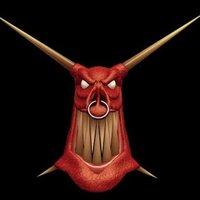Guess I'll chime in here just for the sake of continuing the discussion. 
First off, I should mention my experience.
I have a BAS focusing on Digital Entertainment and Game Design and a minor in Art History and Theory with a career focus on character/monster creating, game writing, production, as well as expertise in 2d and 3d content creation, conceptual design and illustration, and consultation in game mechanic/concept creation. I've only worked as a contractor for small to mid sized studios and recently as a founder of a small indie studio called Pixel Jargon. I've worked as an artist in various other fields fairly consistently for the last 10 years. I'm 29 now.
Personally, I've never met anyone working in the actual meat of game development that can't at least do some rapid visualization or some minimal coding to help show their ideas and have some actual chops to back their position. Maybe in the gilded towers of AAA development there are some guys that got a job there with an MBA and no experience with games aside from playing with other peoples money, but when it comes to the trenches of game development, I really haven't seen people that have their main skill as "idea guy".
I also haven't seen decision making privileges given to the guy that only makes the music, or to a tester, or to anyone who isn't a significant lead, content creator, or some one seriously invested in the project with their money, time, and skills.
So what I want to know is how exactly can someone with no experience in the actual creation of the game, like HR or Legal, be a part of the game design process? I understand they have an impact on the actual development such as HR hiring the right people for the job and Legal covering the butts of the developers in case they don't remove a naughty animation, but they have no real control at all over the design aspect of the game the same as the person who makes awkward small talk at the coffee shop when they find out you make games and want you to make their dreams for them (and give the stranger money for it!).
I guess my real problem is that in those positions, since there is, in my opinion, no real way of influencing the game production or development, why even bother being a part of a dangerously volatile work environment that sees studio closures everyday when you could be someplace else that's more stable, doing the exact same thing?
I would venture to say that you would want to be at least close to the development; to feel like part of the team and help them create games but whats the fun in that? Where is the appeal in loving someone but getting told they just think of you as a friend?
I don't know man, I guess I don't see the point. I've read it hundreds of times here on gamedev.net that its not that tough to learn to program. To me, I would think it's easier to learn to program or draw than it is to give up on a dream for me, and that's what it would be like. If you dream of creating games but don't have the skills needed, the choice to not get those skills and just be near those who do is so much worse. I see this as advocating putting ones self in the friend-zone of game development.
...
Don't friend-zone yourself with game development; learn a useful skill instead of crossing your fingers and hoping that your ideas will be heard one day.
But that's just my opinion.








